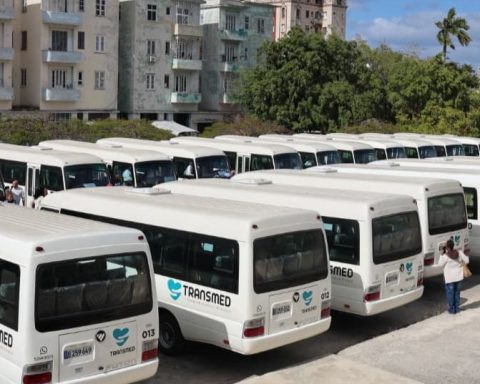After battling in vain against an end to internal combustion engines in new cars after 2035, Italy’s government, led by Giorgia Meloni, is now leading the fight in Europe against the tougher car pollution standards proposed by Brussels.
Text: RFI / AFP
“Italy is at the forefront, our positions are increasingly shared,” said Business Minister Adolfo Urso this week, a fervent defender of the national industry against an “ideological vision” of the fight against climate change.
He was referring to the front made up of eight European countries, including Italy and France, opposed to a future standard called Euro 7 that toughens the conditions for vehicle emission tests and that will come into force from 2025.
The European proposal “is clearly wrong and is not useful from an environmental point of view,” said Transport Minister Matteo Salvini, who called for a “majority block” of this project, considered expensive by the car industry.
Salvini, leader of the far-right League, led the offensive against the extinction of combustion engines in 2035, considering it “insane” that “will destroy thousands of jobs for Italian workers” for the benefit of China, which leads the way in terms of electric cars.
After a last-minute threat from Germany to block the measure, Brussels opened the way to the synthetic fuels demanded by Berlin in March, without giving in to Rome’s request to authorize biofuels to prolong the life of combustion engines.
According to experts, the controversial technology of synthetic fuels, still under development, would only affect a minority of luxury vehicles, such as those of Ferrari, which welcomed the concession made by Brussels.
*Read also: France banned short flights to combat climate change
Strong industrial lobbying in Italy
In Italy, “environmental and climate issues are always relegated to the background” under pressure from “strong industrial lobbying” in the automobile and energy sectors, deplored Federico Spadini, head of Greenpeace Italy.
«None of the governments of recent years has risen to the environmental challenges. Italy has not made a name for itself in Europe as a climate champion,” he told AFP.
In his opinion, “it is true that with the Meloni government the situation has deteriorated.”
Italy is the country with the worst results in Europe: sales of electric cars fell by 26.9% in 2022 and its market share only reached 3.7%, compared to an average of 12.1% in the European Union (EU). ). Incentives to purchase zero emission vehicles have failed.
“There is no enthusiasm for electric vehicles in Italy. The offer is scarce, with only one model from the national manufacturer Fiat”, confirmed the analyst Felipe Muñoz, from Jato Dynamics.
In addition, “buying power is not very high, people cannot afford expensive electric cars, so demand is weak, unlike in the Nordic countries,” he told AFP.
This opinion is shared by Gerrit Marx, president of the Italian truck manufacturer Iveco.
“We run the risk of transforming ourselves into a great Cuba, with very old cars that will continue to work for many years because a large part of the population will not be able to afford an electric model,” he warned.
*Read also: Petro exposes the fight against climate change in Spain while VOX turns its back on him
Very late
In 2022, Italy had about 270,000 direct or indirect employees in the automotive industry, which represents 5.2% of GDP.
The move to the electric paradigm could mean a loss of more than 60,000 jobs in Italy by 2035 for suppliers to the automotive industry alone, according to its European association Clepa.
“Italy no longer has a large car industry after the takeover of Fiat by Stellantis in 2021, although it is still important in terms of components, which are geared towards traditional engines,” Lorenzo Codongo, former chief economist at the Italian Treasury, told AFP.
Italy has lagged behind in terms of vehicle electrification, unions and the government acknowledge.
“If the endothermic engine disappears overnight, we will not be in a position to go fully electric,” admitted Alberto Pastorello, regional secretary of the Uilm union.
“We are extremely behind, in Italy there are barely 36,000 electric charging stations compared to 90,000 in the small Netherlands,” Minister Urso also acknowledged.
Post Views: 39
















